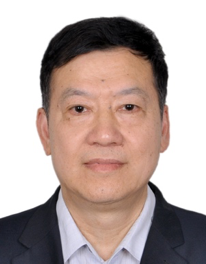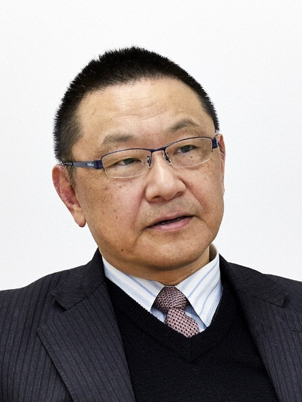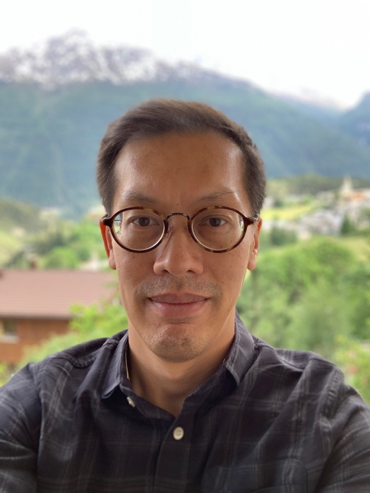8/6 (Tue)
Speaker: Depei Qian (Beihang University, China)
Title: Major issues in exascale computing in China
Summary
Starting with a brief historical review on high performance computing in China, this talk presents the major technical issues in developing the exascale computers, including architectures, processor, memory, interconnect, reliability, and low power design, etc. Issues about system software and application ecosystem are also raised. Then the status of China’s national key project on exascale computing is presented. Perspectives and some open issues are introduced towards the end of this talk.
About the Speaker
Qian Depei, professor at Sun Yat-sen university and Beihang University , dean of the School of Data and Computer Science of Sun Yat-sen University. Since 1996 he has been the member of the expert group and expert committee of the National High-tech Research & Development Program (the 863 program) in information technology. Currently, he is the chief scientist of the national key R&D project on high performance computing.
He has been working on computer architecture and computer networks for many years. His current research interests include high performance computer architecture and implementation technologies, distributed computing, network management and network performance measurement. He has published over 300 papers in journals and conferences.
8/7 (Wed)

Speaker: Satoshi Sekiguchi (National Institute of Advanced Industrial Science and Technology, Japan)
Title: Transforming SMEs and Manufacturing industry business into AI ready empowered by the ABCI
Summary
Artificial intelligence (AI) is already leading the world’s industrial revolution, interacting with IoT, big data, robots, cloud technology, and more. While business owners scream, they say, “AI’s! Open innovation!” But there may be a sense of frustration that is left while we are wondering where to start introducing AI for their business. It is hard to say that what can be realized and connected to the market, possibilities, and limitations, research and development and how to apply development, etc. are still well understood in the SMEs and manufacturing industry in particular in Japan. Considering such business surroundings, AIST initiated a project to offer the computing power for everybody to receive its benefit so that they can try to use AI technologies. We have been operating the ABCI, Artificial Intelligence Bridging Cloud Infrastructure, since August in 2019. From our practice, I would like to share the ideas on how to utilize such supercomputer systems for transforming their business.
About the Speaker
Satoshi Sekiguchi, Ph.D. is currently Vice President of the National Institute of Advanced Industrial Science and Technology (AIST) in Japan. Additionally, he serves as the Director General of the Department of Information Technology and Human Factors, which is engaged in research and development of intelligent information systems that enrich society by specifically addressing the mutual interaction of informatics and ergonomics. He continues to drive innovative developments in high-performance computing from its system architecture to applications, including AIST’s new AI Bridging Cloud Infrastructure (ABCI). His expertise in IT-based solutions to address society’s challenges is helping to develop the next generation of technologies for global environmental monitoring, smart manufacturing for precision and quality, and AI security.
Dr. Sekiguchi received his BSc. from the University of Tokyo, M.Eng. from University of Tsukuba, and Ph.D. in Information Science and Technology from the University of Tokyo, respectively. He joined Electrotechnical Laboratory (ETL) where he started his professional carrier as a research scientist in 1984. In 2002-2008, he served as the founding director of Grid Technology Research Center, followed by the Director of the Information Technology Research Institute at AIST in 2008-2012, and the Deputy Director-General of the Directorate for Information Technology and Electronics in 2012-2014. He is a member of the Science Council Japan, IEEE CS and ACM.
8/8 (Thu)
Speaker: Richard Vuduc (Georgia Institute of Technology, USA)
Title: Performance engineering for sparse matrix, tensor, and graph computations
Summary
At the heart of many computational problems in scientific computing and data analysis lie sparse matrix, tensor, and graph computations. This talk summarizes a few of our recent results in the design of communication-avoiding algorithms, data structures, and controller-based dynamic tuning and control software for such computations. Specific examples will include the sparse direct solvers, tensor decompositions, and the calculation of shortest paths in graph analysis. Collectively, this work sheds light on fundamental issues of how to mitigate the high cost of communication, increasing need to improve locality, and operate efficiently in heterogeneous power-constrained environments.
About the Speaker
Richard (Rich) Vuduc is a Professor at the Georgia Institute of Technology (“Georgia Tech”). He works in the School of Computational Science and Engineering, a department devoted to the study of computer-based modeling, simulation, and data-driven analysis of natural and engineered systems. His research lab, The HPC Garage (@hpcgarage), is interested in high-performance computing, with an emphasis on algorithms, performance analysis, and performance engineering. He is a recipient of a DARPA Computer Science Study Group grant; an NSF CAREER award; a collaborative Gordon Bell Prize in 2010; Lockheed-Martin Aeronautics Company Dean’s Award for Teaching Excellence (2013); and Best Paper or Best Student Paper Awards at the SIAM Conference on Data Mining (SDM, 2012), the IEEE Parallel and Distributed Processing Symposium (IPDPS, 2015), and the ACM/IEEE Conference on Supercomputing (SC, 2018), among others. He has also served as his department’s Associate Chair and Director of its graduate programs. External to Georgia Tech, he currently serves as Chair of the SIAM Activity Group on Supercomputing (2018-2020); co-chaired the Technical Papers Program of the “Supercomputing” (SC) Conference in 2016; and serves as an associate editor of the ACM Transactions on Parallel Computing (TOPC), and previously for the International Journal of High-Performance Computing Applications and IEEE Transactions on Parallel and Distributed Systems. He received his Ph.D. in Computer Science from the University of California, Berkeley, and was a postdoctoral scholar in the Center for Advanced Scientific Computing the Lawrence Livermore National Laboratory.
